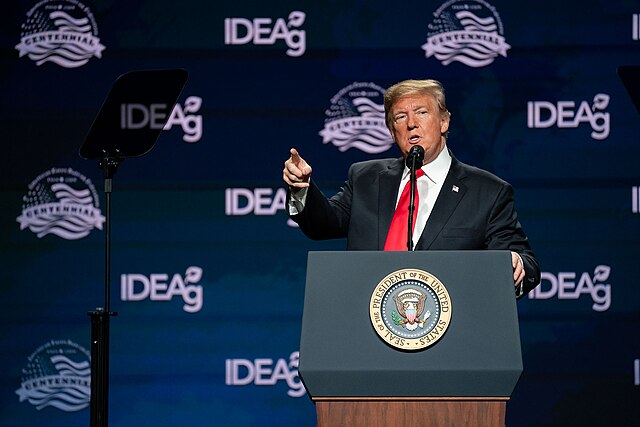Trump’s Legal Team Mandated to Use Secure Facility for Classified Evidence Review
Mandate for Trump’s Legal Team: A Secure Facility for Classified Evidence Review
Former President Donald Trump’s legal team is facing a significant development in their ongoing legal dispute over documents related to his presidency. U.S. District Judge Sarah Henderson has issued a mandate requiring Trump’s legal team to utilize a secure facility for the review of classified evidence. Here’s what you need to know about this crucial development.
Trump Administration Document Controversy
The heart of the matter in this legal dispute revolves around documents from the Trump administration, particularly those tied to his time in office. Various parties, including congressional committees and government watchdog groups, have sought access to these documents to investigate matters of public interest.
However, a key challenge emerges from the classification of some of these documents. The U.S. government asserts that certain materials contain sensitive or classified information, raising concerns about their disclosure. Consequently, Judge Henderson has ruled that Trump’s legal team must utilize a secure facility to review these documents.
The Secure Facility: Safeguarding Classified Information
This secure facility, often referred to as a Secure Compartmentalized Information Facility (SCIF), is purpose-built to handle and protect classified information. It ensures that only authorized personnel can access and review the documents, ensuring the highest levels of secrecy and security.

Debates and Diverging Opinions
This development has ignited debates among legal experts. Some argue that it’s a reasonable precaution to protect classified information, while others express concerns about potential hindrances to transparency and the public’s right to know.
Trump’s legal team, led by prominent attorney Alan Dershowitz, has stated their willingness to comply with the court’s order and use the secure facility for document review. They emphasize their commitment to safeguarding national security while upholding their client’s rights.
Balancing Transparency and National Security
This case underscores the ongoing tension between the necessity for transparency in government and the imperative to safeguard classified information. As the legal proceedings unfold, it remains to be seen how this decision will impact the broader conversation surrounding access to presidential records and the delicate balance between accountability and national security.
FAQs about Trump’s Legal Team Mandated To Utilize Secure Facility For Classified Evidence Review In Documents Case
Q1: Why is Trump’s legal team mandated to use a secure facility for document review?
A1: The mandate aims to protect classified information contained in documents related to Trump’s presidency.
Q2: What is a SCIF, and why is it important in this case?
A2: A SCIF is a Secure Compartmentalized Information Facility designed to safeguard classified information, ensuring restricted access and maximum security.
Q3: What are the debates surrounding this mandate?
A3: Debates center on striking a balance between transparency in government and safeguarding classified information. Some see it as a necessary precaution, while others worry about transparency and the public’s right to know.
Q4: Who is leading Trump’s legal team, and what is their stance on the mandate?
A4: Alan Dershowitz is leading Trump’s legal team, and they express willingness to comply with the mandate while emphasizing the importance of protecting national security.
Q5: What broader implications does this case have?
A5: This case raises questions about the delicate balance between accountability and national security, particularly concerning access to presidential records.



